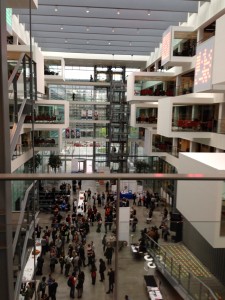 The first Digital STS workshop took place on October 16, 2012, in advance of 4S in Copenhagen, Denmark. Our goal was to attract a range of scholars and practitioners, and to develop a community dialog and prospective publication around STS focused on digital, information and networked technologies.
The first Digital STS workshop took place on October 16, 2012, in advance of 4S in Copenhagen, Denmark. Our goal was to attract a range of scholars and practitioners, and to develop a community dialog and prospective publication around STS focused on digital, information and networked technologies.
The purpose of this workshop was to bring together scholars in science and technology studies and sociotechnical studies from varying theoretical and methodological perspectives and career stages who work in the domain of digital studies in STS, broadly construed. The workshop set the stage for an interactive and vibrant discussion of promising research trajectories, implications for STS theory, and the development of appropriate research and pedagogical tools for digital scholarship in STS. Questions we explored include: what is the role of critical building or making within STS scholarship? How can digital infrastructures support our STS practice? And with its emphasis on scientific practice and the social shaping of technologies tools, what can STS contribute to Digital Studies more broadly?
A Workshop Report is available here with more details of the day’s events and discussion. Description of schedule, participants, and photographs are below.
This workshop was hosted in cooperation with the Center for Network Culture at the IT University of Copenhagen, and generously supported by funds from the NSF’s Digital Societies and Technologies Research Coordination Network.
Schedule
Workshop hours: 8:30p-5:30/6p
Start time is 8:30a sharp! Come at 8am for coffee.
We’ve produced a format that will encourage lively exchange, to build a sense of community around digital scholarship in STS. As a one-day workshop, activities will be structured around topical break groups and plenary discussions. Breakout groups are structured to encourage cross-pollination of the heterogeneous participants: analysts, developers & designers. There will be an opportunity to display and demo interactive projects during the sessions.
Schedule
8:00a Coffee – Come and join!
8:30a DigitalSTS Intro and Workshop Schedule – Janet and David
8:50-10a Participant Introductions (1 slide per person, 1 minute each, strictly enforced!)
10-11a Critical Topics Break Out Group 1 (Assigned by difference)
10:30a Coffee Served in Background…
11-12:00p Break out report-back (3 Critical Topics – 1 Often Left Out Topic)
12 Lunch is served!
12:30-1:30 Virtual Panel
Panelists: TBA
1:30-2:30 – Wrap up from panel. Clustering based on morning topics.
2:30-3:30p – Demonstration Projects
3-3:30 Coffee served in background…
3:30-4:30 ‘Exhibit’ Break-Out Groups, Based on similarity and clusters.Design pedagogical exhibit to communicate our topics.
4:30-5:: Report back on exhibits.
5-5:30/6p: Closing Session.
7pm Hosted Dinner Spiseloppen in Christiania (www.spiseloppen.dk)
9:30pm Drinks option near 4S Conference site, in conjunction with ‘Experiments in (and out) of the studio’ Workshop
Photos from the Workshop
(do you have more? Send along please!)
Participants
| Participant | Affiliation |
| Morgan Ames | Stanford University |
| Mike Ananny | University of Southern California |
| Margy Avery | MIT Press |
| Geof Bowker | Informatics Department, University of California, Irvine |
| Hronn Brynjarsdottir | Information Science, Cornell University |
| Taina Bucher | Media and Communication, University of Oslo Oslo |
| Annamaria Carusi | University of Copenhagen |
| Anita Say Chan | University of Illinois at Urbana-Champaign |
| Marisa Cohn | Informatics Department, University of California, Irvine |
| Peter Sachs Collopy | History and Sociology of Science, University of Pennsylvania |
| Deanna Day | History and Sociology of Science, University of Pennsylvania |
| Ingrid Erikson | School of Information and Communication, Rutgers University |
| Megan Finn | Microsoft Research Cambridge (MA) |
| Laura Forlano | Institute of Design, Illinois Institute of Technology |
| R. Stuart Geiger | iSchool, University of California, Berkeley |
| Lara Houston | Science Studies, Lancaster University |
| Lilly Irani | Informatics Department, University of California, Irvine |
| Nadja Kanellopoulou | University of Edinburgh/Oxford University |
| Christian Katzenbach | von Humboldt Institute for Internet and Society |
| Shreeharsh Kelkar | MIT History; Anthropology; and Science, Technology and Society |
| Nick Knouf | Information Science Dept, Cornell University |
| Guillaume Latzko-Toth | Universite Laval |
| Lucian Leahu | Mobile Life, Sweden |
| Silvia Lindtner | Informatics Department, University of California, Irvine |
| Yanni Loukissas | metaLAB, Harvard University |
| Melissa Mazmanian | Informatics Department, University of California, Irvine |
| Florence Millerand | Universite de Quebec a Montreal |
| Sumitra Nair | Science and Technology Studies, Virginia Technical Institute |
| Daniela Rosner | Stanford University |
| Steve Sawyer | iSchool, Syracuse University & Consortium for the Study of SocioTechnical Systems |
| Nick Seaver | Informatics Department, University of California, Irvine |
| Laura Sheble | Information and Library Science, University of North Carolina Chapel Hill |
| Wes Shrum | Sociology, Louisiana State University |
| Johan Soderberg | Universite Paris Est |
| Maurizio Teli | <ahref foundation, Trento Italy |
| Teresa Velden | Information School, University of Michigan / Information Science, Cornell University |
| Kaiton Williams | Information Science Department, Cornell University |
| Robin Williams | Science Studies Unit, University of Edinburgh |
| Heather Wiltse | School of Informatics and Computing, Indiana University |
| Sara Wylie | Northeastern University |
| Malte Ziewitz | Media, Culture and Communication Department, New York University |
Morgan Ames is a PhD candidate in Stanford’s Department of Communication, advised by Professor Fred Turner. Her dissertation work examines the technological dreams that are part of the One Laptop Per Child (OLPC) project’s “XO” laptop, particularly the hopes of OLPC developers and realities of students, teachers, and parents in the deployment of 9000 laptops in Paraguay. In collaboration with Nokia Research Center Palo Alto, Ames has also explored the socioeconomic divides in family practices and parent attitudes around communication and media technologies including computers, video games, mobile phones, and video conferencing in the United States. Ames has previously collaborated with Yahoo! Research, Google, and Intel Research. She earned a bachelor’s degree in computer science from UC Berkeley in spring 2004 and a Master’s degree in information science from UC Berkeley in spring 2006, and has completed the requirements for a PhD minor in anthropology at Stanford. Back to top
Mike Ananny is an Assistant Professor at USC’s Annenberg School for Communication and Journalism where he researches the public significance of systems for networked journalism. Specifically, he studies how institutional, social, technological, and normative forces both shape and reflect the design of the online press and a public right to hear. He is also a Faculty Associate with Harvard’s Berkman Center for Internet & Society, holds a PhD from Stanford University’s Department of Communication (advised by Theodore L. Glasser), a Masters from the MIT Media Laboratory (advised by Justine Cassell and Hiroshi Ishii), and a Bachelors from the University of Toronto (double major in Computer Science and Human Biology, advised by Ronald Baecker). Back to top
Margy Avery has been working in scholarly communication and publishing for about ten years and is a major advocate for change and reform. Avery works closely with the scholarly communities in STS, Information Science, Communications, and Internet Studies and these interactions inform my thinking as to the value of scholarly publishers as well as the severe limitations they place on rapidly changing models of scholarship. In addition to acquiring books, she regularly participate in conversations around open access, the transformation of scholarly communication, libraries, digital humanities, altmetrics, data standards, and data visualization. Back to top
Geof C. Bowker is Professor at the School of Information and Computer Science, University of California at Irvine, where he directs a laboratory for Values in the Design of Information Systems and Technology. Recent positions include Professor of and Senior Scholar in Cyberscholarship at the University of Pittsburgh iSchool and Executive Director, Center for Science, Technology and Society, Santa Clara Together with Leigh Star he wrote Sorting Things Out: Classification and its Consequences; his most recent book is Memory Practices in the Sciences. Back to top
Hrönn Brynjarsdóttir Holmer is a PhD candidate in the interdisciplinary department of Information Science at Cornell University. Her dissertation work focuses on the politics of information in the sustainability of the Icelandic fishing industry. To that end she has engaged in ethnographic fieldwork in the Icelandic fishery since 2009, interviewing a wide range of stakeholders in the industry, observing and participating in work on board freezer trawlers and danish seine vessels as well as conducting historical archival research. Back to top
Taina Bucher is currently a research fellow at the Department of Media and Communication, University of Oslo, where she recently completed and submitted her PhD dissertation: ‘Programmed sociality: A software studies perspective on social networking sites’. She has written and published on issues concerning algorithmic power and regimes of visibility on Facebook (New Media & Society), the sociotechnical construction of friendship online (Television & New Media) and the ‘technity of attention’ (Culture Machine). Bucher has been a visiting scholar at New York University and the Infoscape Research Lab at Ryerson University, and is currently responsble for and teaching a graduate class on social media. Back to top
Annamaria Carusi is Associate Professor in Philosophy of Medical Science and Technology at the Department of Public Health, University of Copenhagen. She studies social and philosophical aspects of digital media and computational technologies used for conducting research and producing knowledge. Her recent work has focused on the role of computational modelling, simulation and visualisation in current science, focusing in particular on biomedical applications. Her broader interests are in data intensive science, computational processing of data, and distributed research environments. Her approach to the epistemic and ethical issues raised by computationally mediated science draws inspiration from the philosophy of science in practice and science and technology studies. She started my academic career in literary studies, critical theory and aesthetics, and the relation between arts and sciences is an abiding interest. Back to top
Anita Say Chan is an assistant professor of in the University of Illinois at Urbana-Champaign’s Media & Cinema Studies Department. Dr. Chan’s work examines the emergence of innovation-driven national development initiatives in Peru, where new technological and legal resources of the information economy, including intellectual property titles, open digital technologies, and digital education initiatives (including the One Laptop Per Child Program) are promoted to network and “modernize” diverse populations. Her work has considered how the promotion of such legal and technological tools has impacted communities of traditional artisans and free software advocates in rural and urban spaces alike. She has held?postdoctoral fellowships at the CUNY Graduate Center’s Mellon Committee on Globalization and Social Change, and at Stanford University’s Introduction to Humanities Program. ?She received her Ph.D. from MIT’s Program in Science, Technology, & Society, and her masters from MIT’s Comparative Media Studies Program. Her research has been awarded support from the Center for the Study of Law & Culture at Columbia University’s School of Law and the National Science Foundation. Back to top
Marisa Cohn is a doctoral candidate in the Department of Informatics at the University of California, Irvine. Her research draws on methods from anthropology, STS, media studies, and social informatics to understand software systems and computing work cultures. Her research interests include sociomateriality of computing, power and authority in design, translation and narrative, marginalized forms of computing knowledge, and feminist STS. Her dissertation examines sociotemporal entanglements in the case of a long-lived cyberinfrastructure project supporting an ongoing space science mission. Marisa is a member of the Laboratory for Ubiquitous Computing and Interaction and the Digital Cultural Mobile research group at UCI. Her research experience includes ethnographic fieldwork in diverse contexts of digital systems from online virtual worlds to industrial software development companies and professional networks. Marisa is currently completing her doctoral research at UCI while living in Stockholm. Back to top
Peter Sachs Collopy is a historian of science and technology and a doctoral candidate in the Department of History and Sociology of Science at the University of Pennsylvania, where he researches video as a technology that provoked Americans and Canadians to think in new ways about politics and consciousness in the years around 1970. He follows portable video recorders and the feedback discourse that accompanied them across the fields of psychiatry, education, political activism, and artistic and documentary video production. His work thus brings the histories of cybernetics and the human sciences together with those of media and the New Left, focusing particularly on the fertile synthesis of technological utopianism and participatory democracy. His other research interests include the histories of personal computing, theistic evolutionism, anthropological race concepts, and alternative education movements. Back to top
Deanna Day is a doctoral candidate in History & Sociology of Science at the University of Pennsylvania, where she researches the history of consumer medical technologies. Her dissertation research centers around the roles of gender and patient labor in the history of the medical thermometer. She is currently spending the academic year in residence at the Chemical Heritage Foundation, where she is a Price Dissertation Fellow. Her side projects include the social history of the medicine cabinet in American life, the history of weight loss and dieting techniques (particularly diet drinks), and the ways that medical and technological anxieties are expressed in American popular culture. Back to top
Ingrid Erikson is an Assistant Professor of Library and Information Science at the School of Communication & Information at Rutgers, The State University of New Jersey. She studies the constitutive relationship between people and technology–with particular emphasis on locative technologies and social media, as well as innovation and collaborative work practices. She received her PhD from the Center for Work, Technology and Organization in the Department of Management Science & Engineering at Stanford University in 2009. As a Research Fellow at the Social Science Research Council from 2009-2011, Ingrid helped to establish the New Youth City Learning Network, a MacArthur Foundation-funded project to support the development of innovative digital media and learning opportunities for New York City youth among informal learning organizations such as museums, libraries and after school programs. To date, her work has been published in the journals Bulletin of Science, Technology & Society, American Behavioral Scientist, and New Media & Society. Back to top
Megan Finn is a first-year postdoc at the Social Media Collective, a research group at Microsoft Research in Cambridge, Massachusetts. Her research works at the intersection of three areas: crisis informatics, information infrastructure, and the history of information. She completed her PhD at UC Berkeley’s School of Information prior to joining MSR. Her doctoral work explored how people communicated after earthquakes in California and the post-earthquake public information infrastructure during these critical moments in the State’s history. At MSR, she plans to continue working on how information infrastructure shapes event narratives, focusing on contemporary disasters. She has a BS in Computer Science, and worked as an engineer before graduate school. When she has free time, she enjoys screen printing and letterpress. Back to top
Laura Forlano is a tenure-track Assistant Professor of Design at the Institute of Design at Illinois Institute of Technology and a Visiting Scholar in the Comparative Media Studies program at Massachusetts Institute of Technology. Her research is on emergent forms of organizing and urbanism enabled by mobile, wireless and ubiquitous computing technologies with an emphasis on the socio-technical practices and spaces of innovation. She is co-editor with Marcus Foth, Christine Satchell and Martin Gibbs of From Social Butterfly to Engaged Citizen: Urban Informatics, Social Media, Ubiquitous Computing, and Mobile Technology to Support Citizen Engagement, which was published by MIT Press in 2011). Forlano was part of a collaborative project “Breakout! Escape from the Office” that was included in The Architecture League of New York’s Toward the Sentient City exhibition in 2009. Forlano received her Ph.D. in Communications from Columbia University in 2008.
Back to top
R. Stuart Geiger is a doctoral student in the School of Information at the University of California, Berkeley. A computational ethnographer, he studies knowledge production in distributed and decentralized organizations. Stuart’s research currently focuses on the social and organizational roles of software in the operation and maintenance of Wikipedia and scientific research networks. He uses a variety of methodological and theoretical approaches in his research, and is influenced in fields including STS, media studies, social informatics, and human-computer interaction. Back to top
Lara Houston is a PhD student in the Centre for Science Studies at Lancaster University. She has undertaken an ethnography of mobile phone repair workshops in Kampala, Uganda. She is interested in Science and Technology Studies (STS) and feminist technoscience approaches to study socio-technical cultures, especially those in the global South. Before her PhD she studied product design and cultural studies at Goldsmiths College, and worked as a studio manager at boutique design consultancy Bodo Sperlein. Back to top
Lilly Irani is a PhD candidate in the Department of Informatics at UC Irvine, working with Paul Dourish. Her work focuses on the critical analysis of systems design practices at the intersection of STS and HCI, including transnational design work and crowdsourcing systems. Her work on design examines how Indian professionals forge links between user-centered design and forms of middle-class citizenship. In this work, she interrogates how member theories of memes and digital transmission shape their concepts of cultural agency and change. Her second project on crowdsourcing involves cultural analysis of and maker activism in the system Amazon Mechanical Turk. She is the co-designer of Turkopticon, a tool that enables Mechanical Turk workers to protect one another by providing reviews of experiences with crowd-employers. The tool has 10,000 installations and almost 1000 reviews submitted a month. More broadly, she has co-edited (with Chris Kelty (UCLA) and Nick Seaver (UCI)) a special issue of Limn on representing and intervening in collectivities titled Clouds and Crowds Back to top
Nadja Kanellopoulou is a postdoctoral socio-legal researcher who specialises in the governance of biomedicine and emerging technologies in health. Her research interests include legal, ethical, and social mechanisms for controlling the flows of data and tissue in biomedical research, trustworthy governance tools, public engagement in biobanking, and online medicine. She also has secondary research interests in the regulation of assisted reproductive technologies and stem cell research. She recently relocated from the University of Oxford (2012) to Edinburgh, where she had previously obtained her PhD on Group Rights in Biolaw (2008). She holds a PhD and LLM (Edinburgh), LLB (Athens), Admission to Legal Practice (Athens Bar Association). She was previously an ESRC Genomics Forum Research Fellow and INNOGEN Research Associate (Edinburgh), and IAS-STS Research Fellow (Graz). In Oxford, she worked at the Department of Public Health, in the EnCoRe (Ensuring Consent and Revocation) project, funded by EPSRC/ESRC/TSB, where she investigated legal and regulatory aspects of informational privacy to develop dynamic consent solutions in personal data management, and collaborated with the Oxford Radcliffe Biobank to design innovative ICT biobanking tools. Upon completion of the EnCoRe work, she was subsequently invited as Visiting Professor at the Faculty of Law, University of Trento, Italy, on biobanking law and intellectual property. She also received an EPSRC award by the Oxford OeRC Centre under the EPSRC Framework on Responsible Innovation in ICTs, funded by the ESPRC/RCUK for a case study on the ethics of dynamic consent and notification mechanisms in ICTs. Back to top
Christian Katzenbach is a researcher in media and communication studies and governance at the Alexander von Humboldt Institute for Internet and Society (HIIG). His research and teaching focuses on media regulation and governance, science and technology studies (STS), online communication and media change and innovation. Before joining the HIIG, he was a research associate and lecturer at the Institute for Media and Communication Studies at the Freie Universität Berlin. He is currently finishing his PhD Thesis on media governance constellations bringing together governance research and STS. Back to top
Shreeharsh Kelkar is a third-year student in STS at MIT, part of the doctoral program in History, Anthropology and Science, Technology and Society (HASTS). Before coming to STS, he worked in computer science, initially applying machine learning algorithms to extract “meaning” from multimedia artifacts like movies and sports videos and then moving on to build tangible interfaces that helped create more embodied interactions between humans and multimedia artifacts. Subsequently, he spent four years as a research scientist at Avaya Labs working on information visualization and human-computer interaction. As an STS practitioner, he is interested in understanding the social and political economic aspects of computing: the relationship between computing systems and organizations, the new forms of data-collection and measurement (both individual and collective) that computing systems allow, and finally the new ways of acting and knowing that these give rise to. More generally, he is interested in how computing helps in constituting different kinds of knowledge infrastructures and how these get used in making different sorts of knowledge claims. Back to top
Nick Knouf is a PhD candidate in information science at Cornell University in Ithaca, NY. His research explores the interstitial spaces between information science, critical theory, digital art, and science and technology studies. Back to top
Guillaume Latzko-Toth is an Assistant Professor in the Department of information and communication at Université Laval (Quebec City, Canada), a member of the Interuniversity Research Center on Science and Technology (CIRST), and co-chair of the Technology and Emerging Media division of the Canadian Communication Association. After completing his Ph.D. in Communication at University of Quebec at Montreal (UQAM, 2010), he spent a year at University of Illinois-Chicago (UIC) as a postdoctoral research fellow where he studied the emergence of early synchronous CMC applications in PLATO, a pioneering e-learning system developped at University of Illinois. His areas of interest include information and communication technology, computer-mediated communication (CMC), history of CMC devices, sociotechnical approaches in theories of technological innovation, qualitative methods, case study method, virtual ethnography, and online research ethics. He is more specifically interested in the role of users in the genesis and evolution of software-based media. In his doctoral dissertation, he studied the co-construction of an Internet-based chat system, Internet Relay Chat (IRC). Back to top
Lucian Leahu is a postdoctoral researcher at the Mobile Life Research Center in Stockholm, Sweden where he holds a fellowship awarded by the European Research Consortium for Informatics and Mathematics. Lucian imagines and designs new kinds of human-machine experiences by examining the ways in which computation continuously reworks the distinctions between people and machines. He contributes to sociotechnical system research by opening up novel technical and design spaces in conversations with a number of interconnected theories and epistemologies of the mutual constitution of humans and non-humans. Lucian holds a PhD (2012) and MSc (2008) in computer science from Cornell University. He was awarded an Intel PhD Fellowship in 2010. Back to top
Silvia Lindtner is a post-doctoral researcher at the ISTC (Intel Science and Technology Center) at the University of California, Irvine and in the department of Information & Computer Science at Fudan University, Shanghai. Her research focuses on the culture and politics of creativity and open source technology production in China. Her dissertation examines in ethnographic detail China’s nascent DIY (do it yourself) “maker” community, brought together through the technological and discursive productions of a collective of geeks, bloggers, new media artists and tech entrepreneurs. It uncovers how seemingly opposing groups such as countercultural makers and Communist politicians argue that creativity is the way of the future for social change and technological innovation in China and the world writ large. Lindtner has published her work across the fields of China studies, digital media studies, human-computer interaction and science and technology studies. Back to top
Yanni Loukissas is a Senior Researcher with metaLAB a project of the Harvard Berkman Center for Internet and Society, where he develops new methods to illuminate human-machine relationships in their environmental contexts. His current focus is on cultures of creative and cooperative work that are shaping new roles for human presence, imagination, and skill. His recent book, Co-Designers: Cultures of Computer Simulation in Architecture (Routledge, 2012), critically examines a shift in the practices of designers, from manual traditions to virtual techniques, and accompanying concerns about the redistribution of control and responsibility in design. He is also developing a new class of visualization tools that draw together a combination of qualitative and quantitative data for studies of human- machine interactions in complex environments: operating rooms, cockpits, and even on the surface of the moon. He recently completed an interactive visualization of the last ten minutes of the Apollo 11 lunar landing, which illustrates how real-time communications can be translated into legible graphic patterns to inform a broad range of audiences. He has taught at Cornell, MIT, and the School of the Museum of Fine Arts. He holds a BArch from Cornell as well as a SM and PhD in Design and Computation from MIT. Back to top
Melissa Mazmanian is an assistant professor in the Department of Informatics at the Donald Bren School of Information and Computer Sciences at the University of California, Irvine. Melissa’s interests revolve around on the experience of communication technologies as used in-practice within personal and organizational contexts, specifically in relation to identity projection and the nature of personal and professional time in the digital age. She is currently engaged in an ongoing ethnographic research project with Ellie Harmon and Christine Beckman of UCI to collect empirical data on how busy professionals negotiate wireless communication in personal time. Past research includes analyzing an organizational change effort oriented around increasing predictable time off in a consulting firm; tracing the evolution of communication patterns and the emergence of shared expectations of availability as wireless email devices were introduced into a footwear manufacturing company; and studying the ways in which the material experience of using certain communication technologies resonates with the elite identities of knowledge professionals. Melissa earned a PhD in Organization Studies from the MIT Sloan School of Management and a Masters in Information Economics, Management and Policy from the University of Michigan, School of Information. Back to top
Florence Millerand is a tenure-track Assistant Professor at the Department of Social and Public Information at the University of Quebec at Montreal (UQAM). Her research examines large scale cyberinfrastructural systems and e-Science initiatives in research communities. Back to top
Sumitra Nair is an advanced doctoral candidate in Science and Technology Studies at Virginia Polytechnic Institute and State University (Blacksburg, Virginia), with undergraduate and graduate training in sociology. Her dissertation attempts a partial biography of an information infrastructure that supports a poverty alleviation programme in India, and this new artifact’s relationship to urgent questions of design, livelihood, and citizenship. She was first drawn to the intersection of information and STS during her Masters course work in Sociology at the Delhi School of Economics in India. She was exposed a more deliberate effort to read the digital ‘in its context’ during her work as an ethnographer with Microsoft Research India (MSRI), prior to her doctoral research. Responding to the lab’s interest in exploring whether and what affordances the India location had for its work, she investigated everyday technology stories there at a time when India was seeing a rapid proliferation of mobile phones and other information technologies. She studied ICTs within homes, small enterprises, formal and informal community structures. This work has been published and circulated in various fora. For all these communities of practice, it was clear to her that the immersion of these technologies was deeply linked to the meaning-making processes that accompanied their uptake. She builds on this theme of the place of the normative in information infrastructures in her doctoral work in STS at Virginia Tech. As she moves towards completing my dissertation, she is developing an interest in the relationship between physical and digital spaces, especially with respect to designing for publics. Back to top
Daniela Rosner is a Post Doc at the d-school and the Department of Communication at Stanford University where she is studying repair practices with Professor Fred Turner. Her research focuses on how digital technologies are woven into the production and consumption of the things people make. She combines design, computing, and fieldwork to help reveal the social conditions and cultural values that shape and are shaped by digital technology. She has worked in design research at Microsoft Research, Adobe Systems, Nokia Research and as an exhibit designer at several museums, including the Adler Planetarium and Astronomy Museum. Most recently, Daniela developed a graduate interaction design studio that she taught at the California College of the Arts (CCA). She holds a B.F.A. from the Rhode Island School of Design in Graphic Design and a M.S. in Computer Science from the University of Chicago, and a Ph.D. from UC Berkeley’s School of Information. Daniela is also a regular columnist for Interactions Magazine, one of the premier publications of ACM SIGCHI. In 2010, she was named an Anita Borg Memorial Scholar. Back to top
Steve Sawyer is on the faculty of Syracuse University’s School of Information Studies and a research fellow at the Center for Technology and Information Policy. Steve’s research focuses on the sociotechnical relationships among changing forms of work and organization and their relationships to the uses of information and communication technologies. Sawyer’s research is done through detailed field-based studies of scientific collaborators, software developers, real estate agents, police officers, organizational technologists, and other information-intensive work settings. His work is published in a range of venues and supported by funds from the National Science Foundation, IBM, Corning, and a number of other public and private sponsors. Prior to returning to Syracuse, Steve was a founding faculty member of the Pennsylvania State University’s College of Information Sciences and Technology. Steve earned his Doctorate in Business Administration from Boston University in 1995.Back to top
Nick Seaver is currently a PhD student in Cultural Anthropology at UC Irvine, studying algorithmic music recommendation. His ongoing research interest is in the history of music and listening as it is entangled with technical systems, particularly digital ones. He has an S.M. from MIT in Comparative Media Studies, where he wrote a thesis on one of the early “digital” technologies — the player piano — examining the development of a standard of non-acoustic fidelity in early-twentieth-century piano research labs. His undergraduate degree is in Literature, from Yale, where he wrote a thesis on the co-history of audio reproduction technologies, fidelity, and avant-garde “noise” composition. He is interested in experimental music, experimental anthropological methods, and the myriad ways in which people try to give up their agency to technology. Back to top
Laura Sheble is a Doctoral Candidate in the School of Information and Library Science at the University of North Carolina Chapel Hill. Laura’s dissertation work, performed under the title “Research synthesis: Diffusion, adaptations, impact,” is focused on the diffusion of research synthesis across science fields, how it has been adapted to a select set of fields, and whether use of this method has contributed to changes in research practices within these fields. Currently, Laura is a Research Assistant for assessment at the National Evolutionary Synthesis Center (NESCent). At UNC, Laura has worked on the VidArch: Preserving Video Objects and Context project; personal health record interface design; blogger’s perceptions of digital preservation of blogs; and, as a Triangle Research Libraries Network (TRLN) Doctoral Fellow, collaborated with Duke University Library and IT staff to implement, assess, and adjust services for the Duke Information Commons. Prior to enrolling in the doctoral program at UNC, Laura was a Systems Librarian at the Detroit Area Library Network (DALNET), and the first Electronic Resources Librarian at Wayne State University, a Research I institution in Detroit, Michigan. As a librarian, Laura engaged with the open source community, especially that of the Greenstone Digital Library Software project (http://www.greenstone.org/), and, in addition to leading local digital library projects, performed research in association with the Greenstone Development Team that contributed to the assessment and understanding of the diverse, international communities of individuals who develop digital libraries with Greenstone. Laura has a MLIS from Wayne State University, and a BS in Botany from Auburn University (Alabama). Back to top
Wes Shrum is Professor of Sociology at Louisiana State University, and has served as the 4S Secretary since 1987. Professor Shrum’s recent research focuses on globalized science, communication networks, and the role of the internet and mobile phones in Africa and Asia, especially in Kenya, Ghana and Keral in southwestern India. He is also a strong proponent of video ethnography and has recently founded a laboratory at LSU for Video Ethnography that provides the tools and training for this form of qualitative research.
Back to top
Johan Soderberg is a post-doc researcher at Laboratoire Techniques, Territoires et Sociétés (LATTS) and Institut Francilien Recherche Innovation Société (IFRIS) in Paris Est/École des Ponts. Last year he defended his PhD thesis “Free software to open hardware: Critical theory on the frontiers of hacking” at the unit for Science and Technology Studies, Göteborg, Sweden. The discussant was Andrew Feenberg. He is on the editorial board of two open access journals, Triple-C and Journal of Peer Production, both dedicated to new media related research questions. Back to top
Maurizio Teli is a researcher at <ahref Foundation, an Italian research institute focusing on understanding the social dynamics surrounding the production of journalistic information on the Internet. He has been hired by the <ahref Foundation because of his background, a master degree in political sciences, a doctorate in sociology (with an STS orientation), and a research experience dealing with digital technologies. His PhD dissertation (2008) focused on understanding, through an actor-network theoretical framework, the practices supporting the construction of new power relationships in a corporate open source software development project. After his PhD, he was the scientific coordinator of the European Project “My Ideal City” (ga n° 230554), oriented toward the use of digital technologies in science musems exhibitions (2009 – 2011). His commitment to Digital STS has been proved also by his involvement as an “open panel” convenor both at the Italian STS conference 2012 and at the forthcoming EASST/4S Joint Meeting in Copenaghen. Moreover, the <ahref Foundation is organizing, thanks to his contribution and effort, a PhD school on Digital Ethnography and Digital Methods, hosting lecturers like Richard Rogers and Noortje Marres. Back to top
Teresa Velden is a Research Fellow at the School of Information at the University of Michigan and a Lecturer in Web Information Systems at Cornell University. She graduated from Cornell University in 2011 with a PhD in information science including S&TS as minor concentration. A theoretical physicist by training, she returned to academia in 2005 from a professional career in information management at the Max Planck Society in Germany. Her experiences when leading a team to develop innovative information services for researchers across a wide range of disciplines, from natural sciences, social sciences to humanities, made her curious about the different attitudes with which academic disciplines adopt and shape web technologies to support scholarly communication. Her research interest is in understanding the production of scientific knowledge as a collective process. In particular, she is interested in how to explain differences in collaboration and communication practices across scientific communities, and how to consider these differences when designing web-based technologies to support new ways of scientific knowledge production and sharing as envisioned by the open access, open data, and cyber infrastructure initiatives. Back to top
Kaiton Williams is a 4th year PhD student in Information Science at Cornell University (with a minor in Anthropology) but he thinks of his work as residing in an area of scholarship that borrows from all three. He merges an ethnographic approach with critical design in a study of the makers and adopters of technology in developing world that marries reflection with generative critique. He is Jamaican — from a jumbled past and a jutting assemblage of artifacts, people, and memories that is constantly being re-made — and that geographical identity has a strong impact on his approach. He studies notions of progress there, building on those rich local veins of critical making to both understand and co-develop alternate imaginings of present and future digital landscapes. Back to top
Robin Williams is Professor of Science, Technology, and Innovation at the School of Social and Political Science at the University of Edinburgh. Robin ran the Edinburgh PICT Centre under the ESRC Programme on Information and Communications Technologies (1987-95). 20 years of interdisciplinary research into ‘the social shaping of technology’ has focused upon the interplay between ‘social’ and ‘technical’ factors in the development and implementation of a range of technologies including EFTPoS, EDI, CAPM/CIM, Banking systems and Multimedia. He led a review of the integration of socio-economic research into the first round of the EC FP5 Information Society Technologies programme, and has participated in many IST projects, for example the ParcelCall project developing an integrated logistics management system, a European study of innovation in multimedia, Social Learning in Multimedia (SLIM), a major IST project on gender and ICTs (SIGIS). He participates in the EPSRC Dependable Computing Project (DIRC) amoung many other UK funded activities. He was a director of SUPRA, and is currently Co-Director, ESRC Innogen Centre. Back to top
Heather Wiltse is currently a PhD Candidate in the School of Informatics and Computing at Indiana University Bloomington, working with Erik Stolterman as her advisor. Her official concentration is human-computer interaction (HCI), but her research sits at the intersection of HCI, philosophy of technology, science and technology studies (STS), and (to a lesser extent) media studies. Before her PhD studies she completed a Master’s degree in HCI at the Indianapolis campus of Indiana University (IUPUI). She has published/presented her work at CHI, NordiCHI, SPT (the meeting of the Society for Philosophy and Technology) and 4S; and this past summer she participated in the Consortium for the Science of Sociotechnical Systems (CSST) summer institute and the Values in Design workshop at the University of California Irvine. She plans to finish her dissertation by next summer, and is currently on the lookout for postdoc opportunities for next year. Back to top
Sara Wylie is a Senior Research Scientist in Northeastern University’s new Social Science Environmental Health Research Institute. She teaches STS in Sociology and Health Sciences and received her Ph.D. from MIT’s History, Anthropology, Science, Technology and Society (HASTS) Program in 2011. Her dissertation “Corporate Bodies and Chemical Bonds: An STS Analysis of the American Natural Gas Industry” is an ethnographic study of the role science based NGOs played in the emergence of public concerns about the human and environmental health impacts of chemicals used in natural gas extraction, particularly hydraulic fracturing. Investigating new methods for practicing STS research, her dissertation additionally developed and implemented web-based tools to help communities and experts across the country study and hold extractive industries accountable for their social and environmental impacts. This project (called ExtrAct) was developed in collaboration with artist and technologist Chris Csikszentmihalyi, in MIT’s Center for Civic Media. More generally, Sara seeks to develop new modes of studying and intervening in large-scale social issues such endocrine disrupting chemicals and corporate accountability through a fusion of social scientific, scientific and art/design practices. Pursuing these interests Sara taught in Digital+Media at Rhode Island School of Design (RISD) for three years before moving to Northeastern. She has worked extensively with Theo Colborn, lead author of “Our Stolen Future.” Sara is also a cofounder of Public Laboratory for Open Technology and Science, a non-profit that develops open source, Do It Yourself tools for community based environmental analysis. Expanding her interest in transforming science practice through STS research, as Public Lab’s Director of Toxics and Health research she helped organized and initiate open source research projects on low cost thermal imaging, detection of indoor air hazards, community based methods for detection of hydrogen sulfide and home-testing for environmental estrogens. Through her new role helping to build Northeastern’s Social Science Environmental Health Research Institute she continues to work actively with Public Lab as a consultant and community organizer. Back to top
Malte Ziewitz is a postdoctoral research fellow at the Media, Culture and Communication Department and the Information Law Institute at New York University. He researches the politics and practicalities of governance in, of and through digitally networked environments. Broadly based in Science and Technology Studies (STS), ethnography and public policy, he is currently finishing his doctoral dissertation at the University of Oxford, a praxiography of reviewing, rating and ranking in healthcare and search engine optimization (SEO). As Principal Investigator, he headed the ESRC-funded “How’s My Feedback?” project, a collaborative design experiment to rethink and evaluate online review and rating websites. Previously, he was a McCloy Fellow at Harvard University, a Non-resident Fellow at the Research Center for Information Law at the University of St. Gallen, and a Junior Researcher at the Hans Bredow Institute for Media Research. Malte holds an MPA from Harvard University and a First State Exam in Law from the University of Hamburg. Back to top


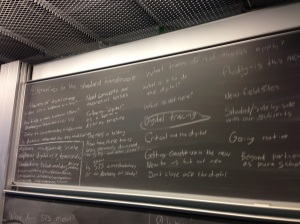
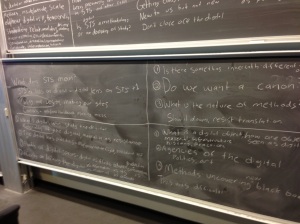
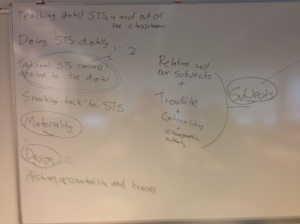
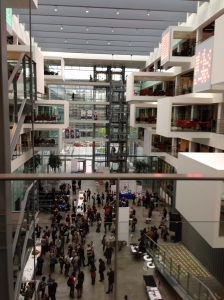
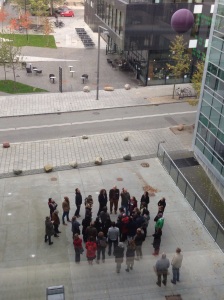
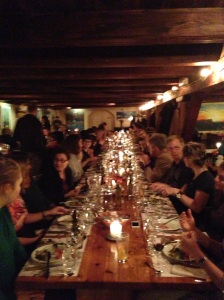
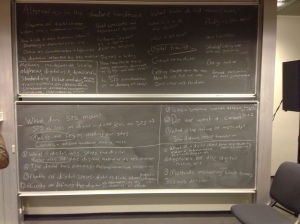
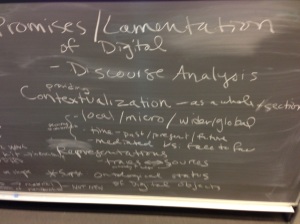

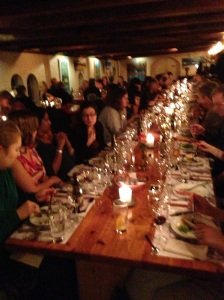

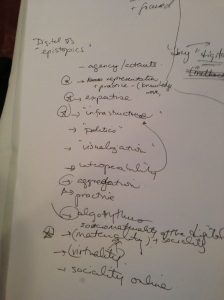
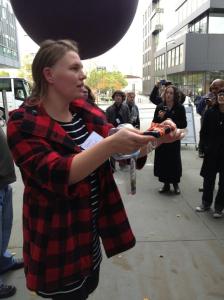
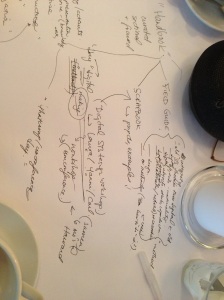
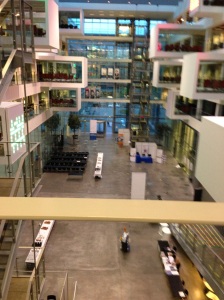
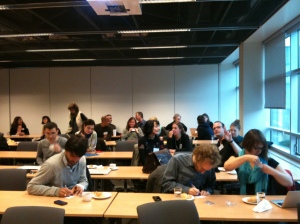
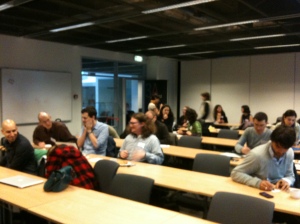
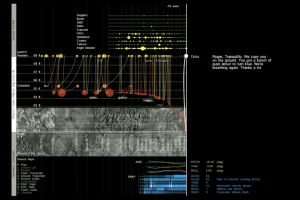
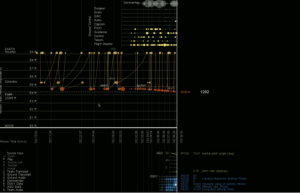

One Reply to “Copenhagen 2012”